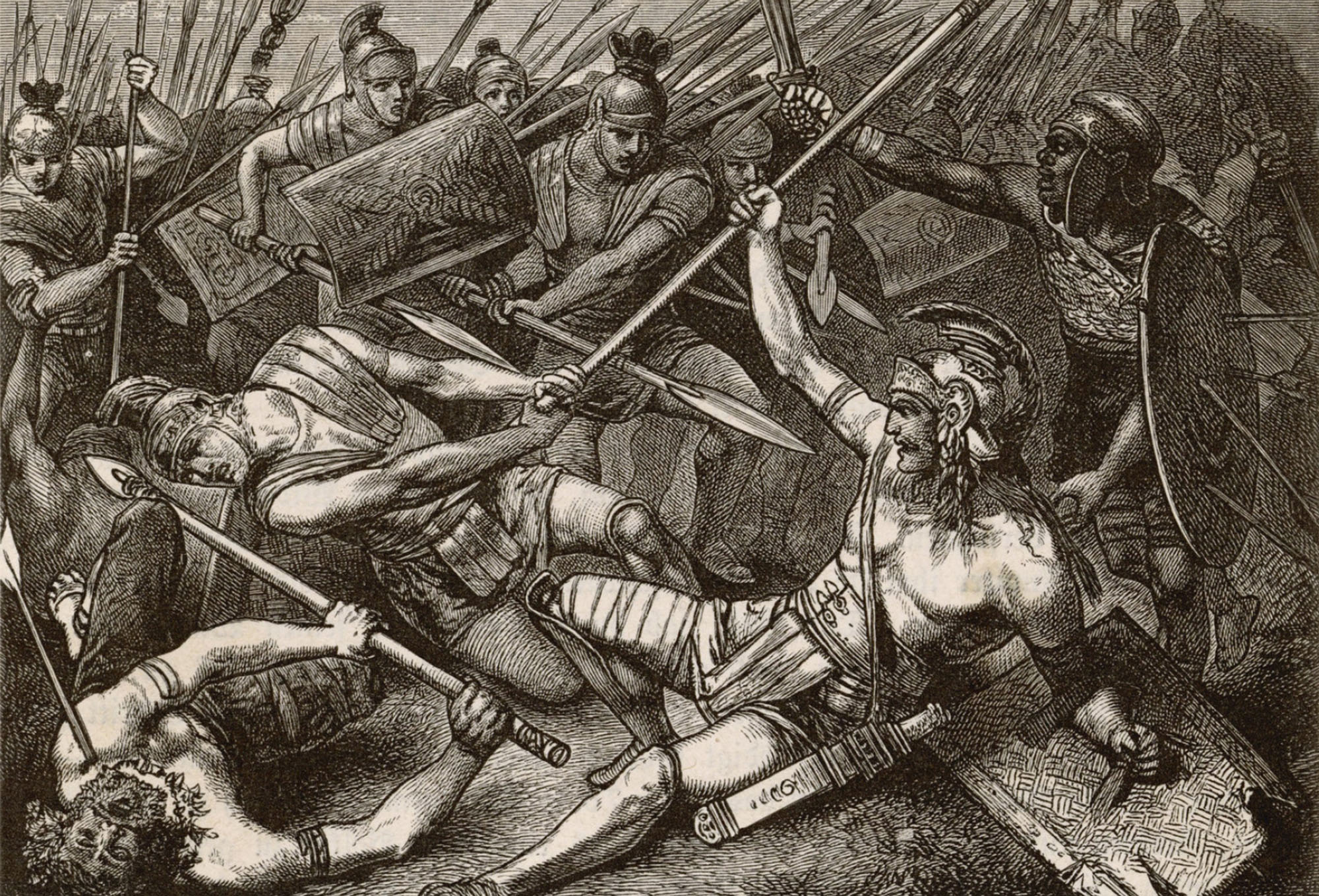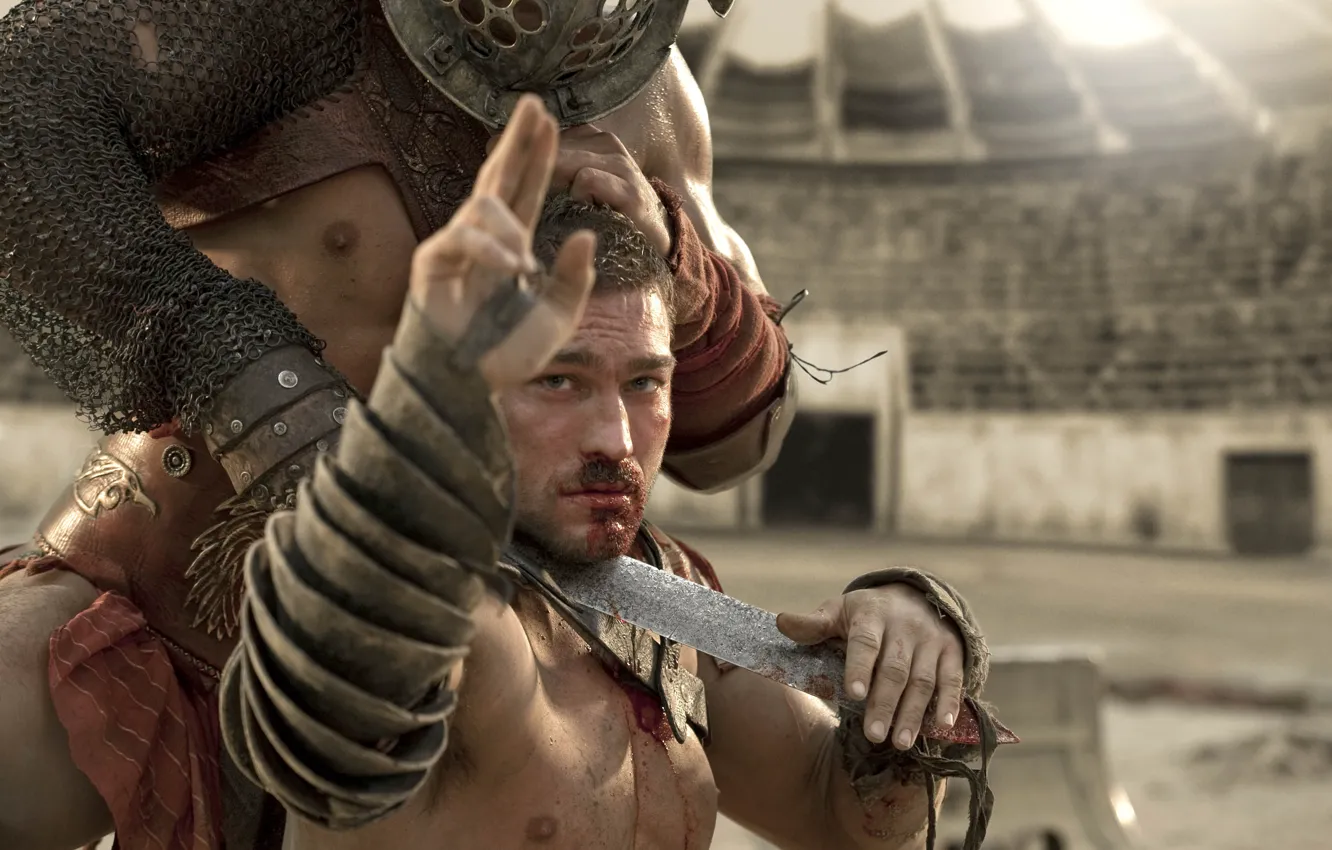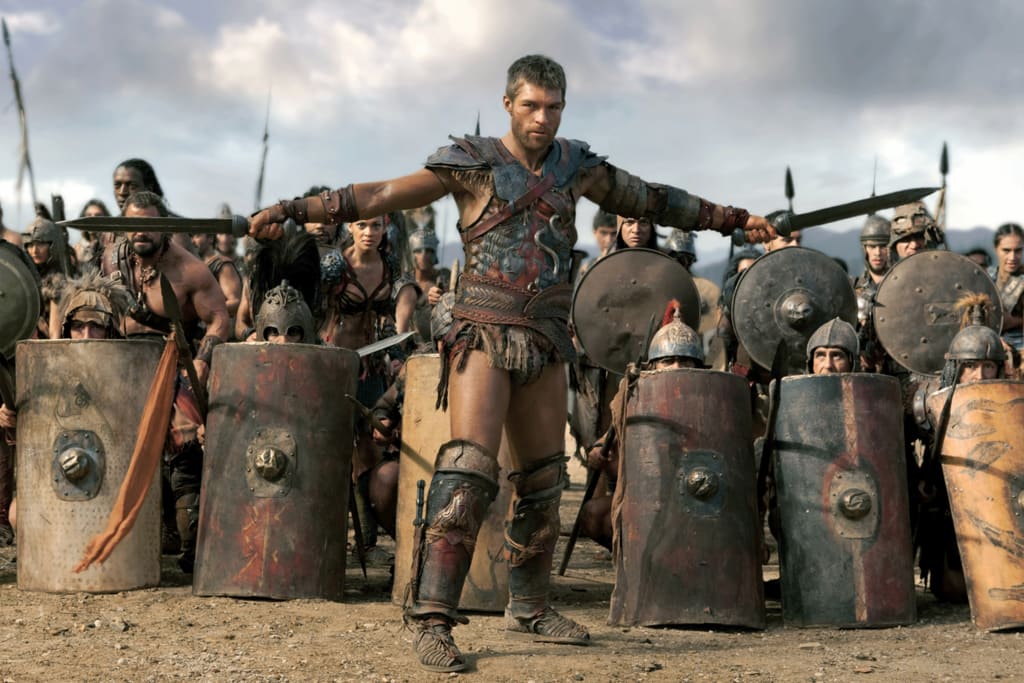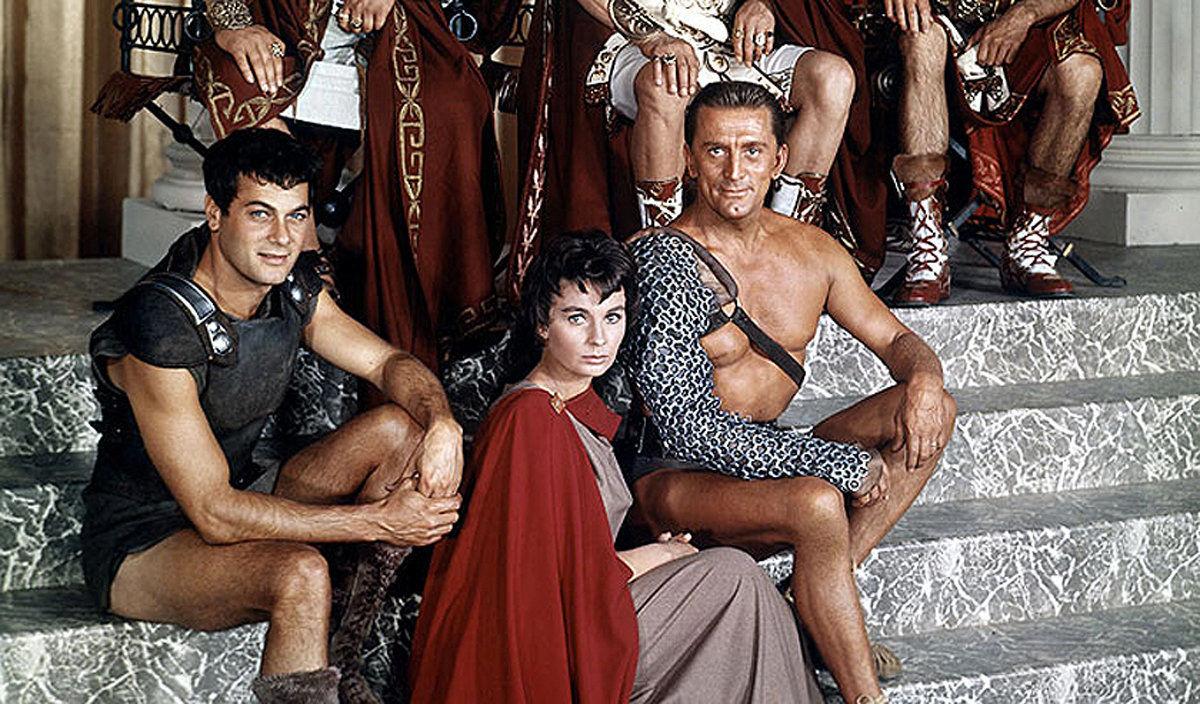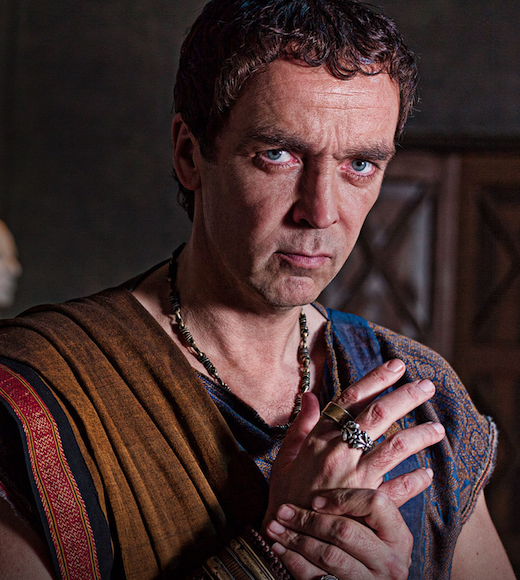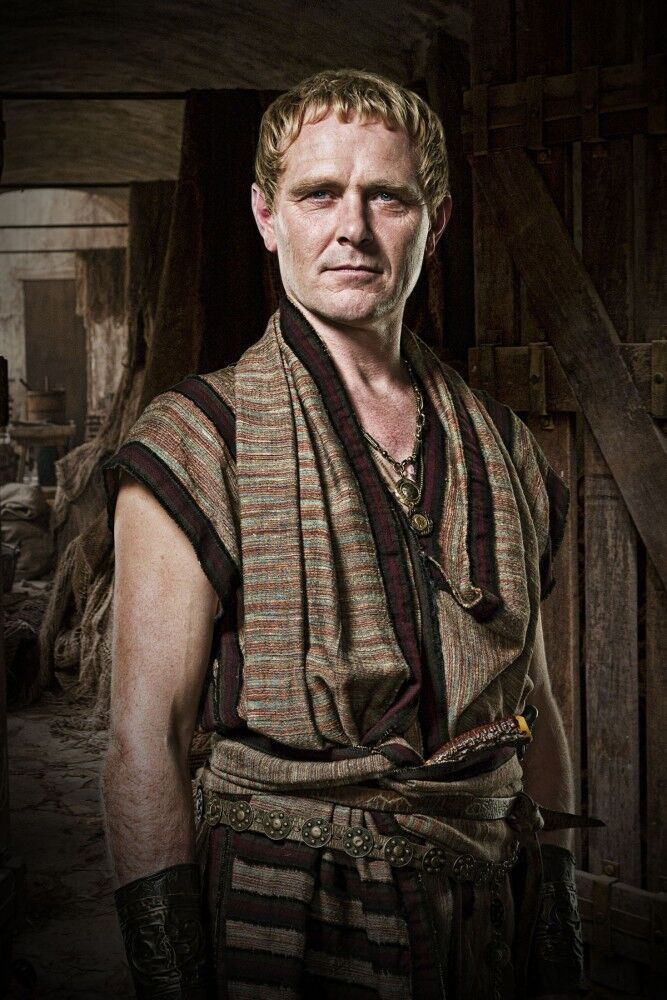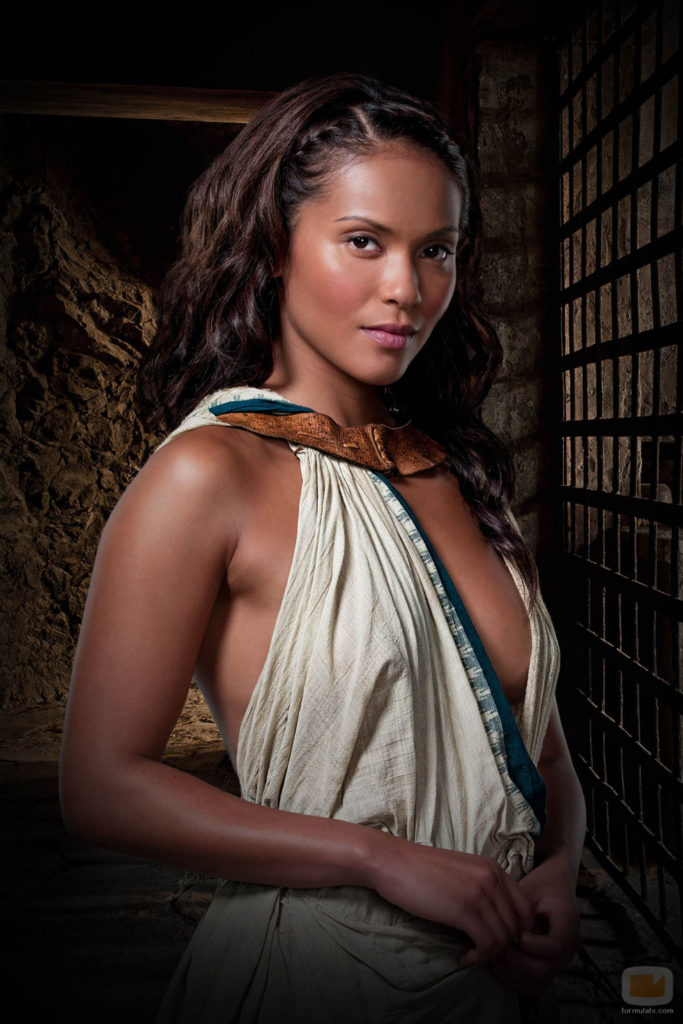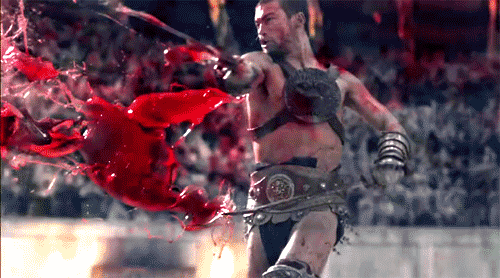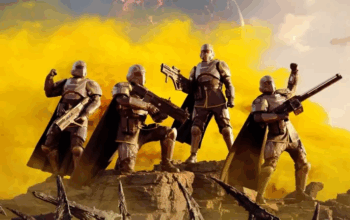The story of Spartacus and his gladiator/slave rebellion (more formally known as the Third Servile War) has captivated people throughout history. A slave turned gladiator turned leader of a slave revolt in the heart of the Roman Empire would in turn inspire many such similar revolts throughout history.
Naturally, it was only a matter of time before such tales found their way to film. The most notable, of course, is the 1960 Kirk Douglas film, Spartacus. Directed by none other than Stanley Kubrick, it was released with a somewhat politically charged undertone as it was released at the height of the Civil Rights movement.
No real attempt was made to recapture the legend until 50 years later being made as a high-budget TV series by Starz, also titled Spartacus. Shot in the same style as Zack Snyder’s 300, the Starz original series is both famous and infamous for a variety of reasons: its over-the-top depictions of violence and sex, cruel reality of slavery (flagrantly trying out out-HBO HBO), and most infamously the untimely death (and subsequent re-casting) of its lead actor during production.

Season 1 (Andy) 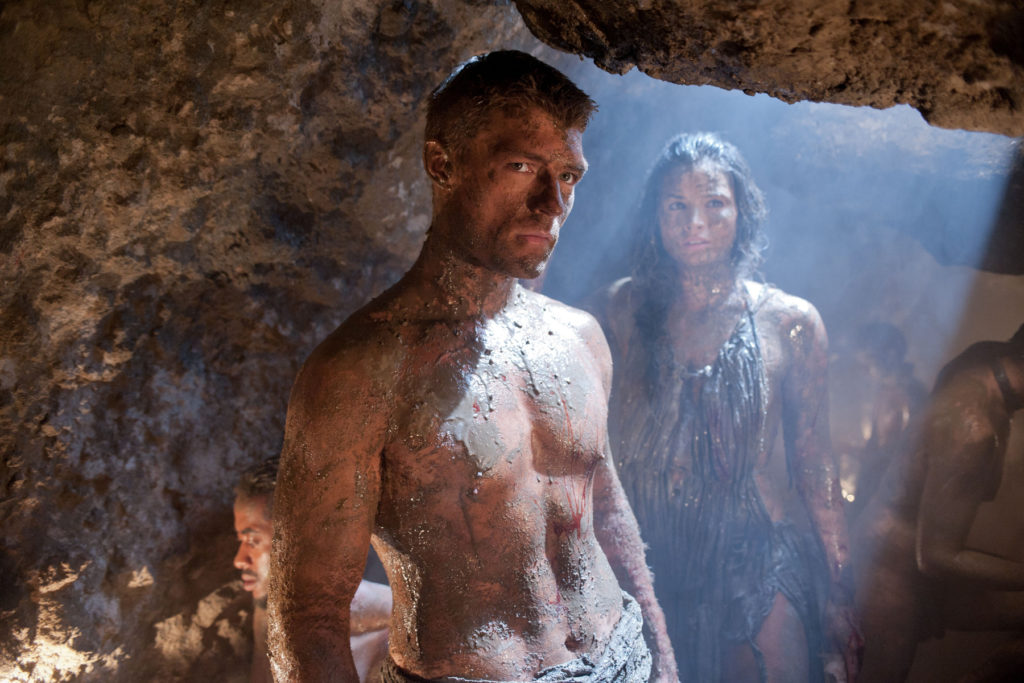
Seasons 3+4 (Liam)
We’ll be comparing both of their approaches to see who told this story best.
Telling the Story
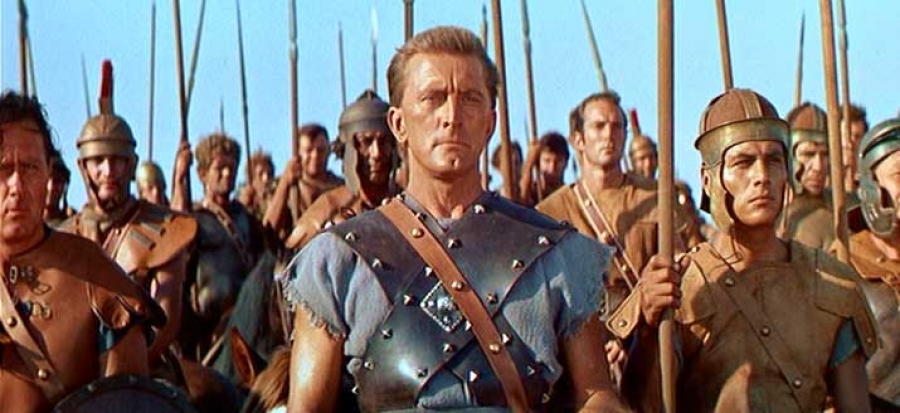
The Film
The 1960 film is a simple setup – an already enslaved Spartacus is working a mine before being picked up by his historical slave master, Batiatus, because of his potential as a gladiator. The rest more or less follows the same beats of every other epic with a simple morally righteous hero becoming an outlaw fighting for freedom – basically Braveheart but with 1960’s cinematic nostalgia.
That’s really more or less it as there’s very little in terms of nuance to this movie.
Interestingly, this was cited by Stanley Kubrick as his least favorite film to work on because the character is so stale compared to the other films he made. Allegedly, he wanted to go further with Spartacus and its subject matter (ancient slavery), but the studio wouldn’t allow it.
The Series
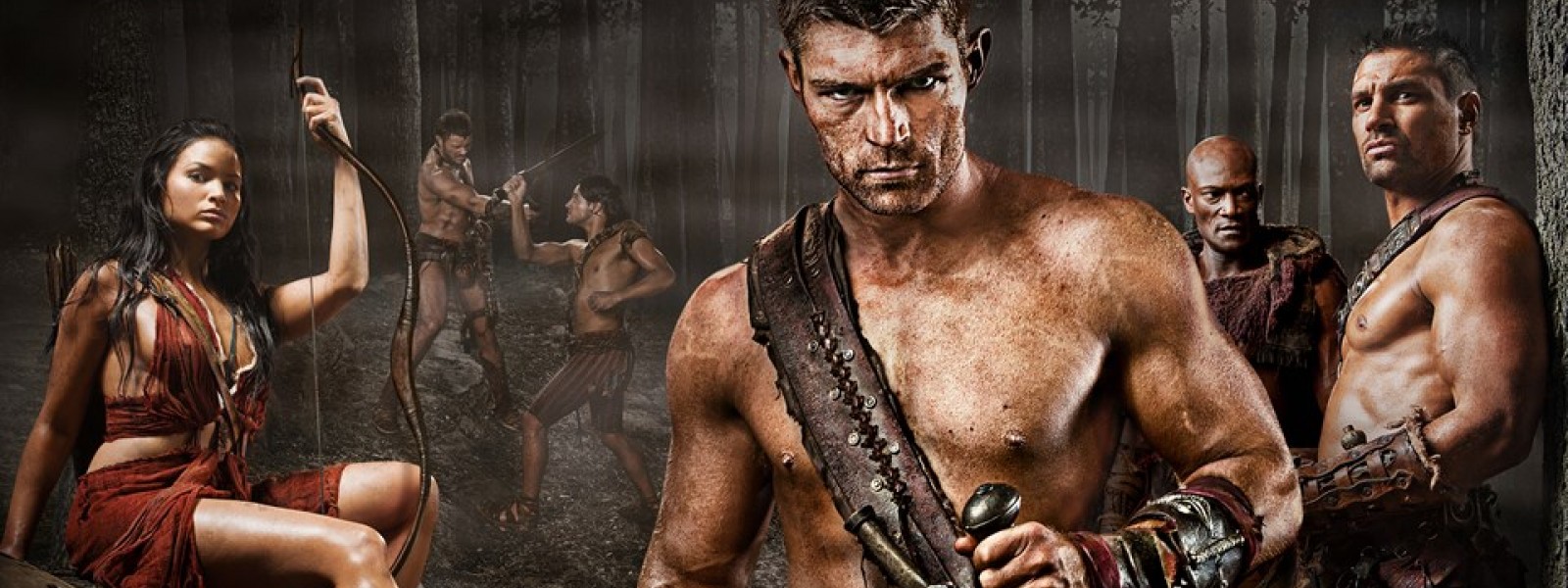
The TV series adds a lot more to both the world the characters live in. Each season has its own title that fits with its theme. The first season, Blood and Sand, introduced Spartacus’ home life in Thrace to his enslavement, fights for survival in the Arena, and desperate gambits to save his wife.
The series’ second season, Gods of the Arena is a 6-episode prequel focusing on Batiatus’ house and his gladiators five years before Spartacus’ arrival. This also gives us new insights into the other characters such as Oenomaus and Crixus (who would also become real leaders in Spartacus’ revolt), but particularly focuses on Batiatus and the newly introduced Gannicus, who is more or less the Spartacus surrogate of the season.
For the third season, Spartacus: Vengeance, we are back to Spartacus, now played by Liam McIntyre, and his band is on the run and plot to strike back at Glaber, the roman praetor responsible for Spartacus’s enslavement.
The final season, War of the Damned, was the series at its best, being a full-scale war (as the title suggests) between Spartacus’ rapidly growing army and Rome’s legions now led by the richest man in Roman antiquity, Marcus Crassus.
Needless to say, a TV series gives far more time to explore these characters and explore the decadence that was ancient Rome.
World Building

Speaking of Rome, we all know that the real star of any historical film (at least for us) is never found in the cast – but in the setting. Historical Epics are the biggest way to blow a studio’s budget in the name of immersion and grand set pieces – so how did our Spartacus-es fare?
The Film – An Unfortunate Choice of Words
A particular weakness of the original film is that its tone and presentation constantly clash with the time period. I’m not referring to the inconsistent accents or unrealistic costumes – but rather the type of language that they use.
Every line of dialogue sounds like 1960 America instead of 75 BC Rome.
At one point in the film Kirk Douglas’ Spartacus ends up in a fight with an African slave in the arena and one onlooker calls him a “negro”. Setting aside the inflammatory language standards of 1960 vs today, this is completely out of place for a scene set in Rome. While that particular term may have a Latin origin, its connotation to skin color lies in the post-colonial “new world”, not the old Roman one. Lines like that were clearly meant to resonate with American audiences of the 1960s, not play to history.
There was even a bizarre line where Crassus briefly mentioned that “Rome is is an aspect of God” with a young Ceaser replying, “I didn’t know you were a religious man”. Yeah, somehow they work in God – the Judeo-Christian God – which wasn’t even a thing in the very pagan Republican Rome. Unless Crassus was a secret convert to Judaism (he wasn’t) I find that hard to come by, and lines like this immediately rip me out of the time period and back to the 20th century.
There’s also an abundance of out-of-place Christian themes such as forgiveness and faith. It even goes so far as to have the introductory narration flat-out stating that Christianity would someday overthrow the Roman empire and bring an end to slavery. While Rome would eventually turn itself Christian in ~300 years (thanks, Constantine?) before being sacked by pagan Visigoths, I think they’re missing a quite a few steps there…
Literally the first sentence of the final script:
In the last century before the birth of the new faith called Christianity, which was destined to overthrow the pagan tyranny of Rome and bring about a new society...The Series – A “Shakespearean” Rome
In stark contrast stands the Starz series – and not just because they “thank the godS” and “praise Jupiter“. Their speech patterns are actually consistent – even if it is the standard “Shakespearean” representation of Rome. While this portrayal of the Roman tongue is a bit antiquated (its origins are the actual Shakespeare plays), we generally this take in modern media as the high-English accent tends to illicit the UK’s colonial empire days, which is pretty spot-on for Rome’s “superior to all these barbarians” vibe.
Furthermore, despite the show’s relatively low budget, it does a great job immersing you into the era. While its no HBO’s Rome when showcasing the cities, the series focuses its budget on the Roman villas. This is not only where the gladiators spend their lives training, but where the audience gets a glimpse into Rome’s extravagant, decadent, and depraved parties – orgies and all.
Spartacus Himself
Continuing the Christian themes of the 1960 film, Kirk Douglas’ Spartacus is almost Christ-like with no real flaws aside from maybe an overly stoic lack of emotion.
In one particular scene his fellow gladiators forced some of the guards to fight to the death and Spartacus stops them and frees them. Needless to say, the actual man never did that – in fact, he often forced captured roman legionaries to fight to the death as his own version of role-reversal therapy. Now that sounds like something in Stanly Kubrick’s alley.
In the end, he is ultimately crucified by the Romans with his lover looking up at him – FOR THE SYMBOLISM, DAMMIT!
The Series – A Tale of Two Sparticus-es
Spartacus, the everyman?
Or Spartacus, the Leader of Men?
It is actually hard to compare Kirk Douglass’s Spartacus with his series counterpart because of tragic reasons. Andy Whitfield, who portrayed Spartacus for the duration of Blood and Sand, was diagnosed with Non-Hodgkin’s Lymphoma before filming. This prompted the studio the create the prequel season (Gods of the Arena) hoping it would give time for Whitfield to recover. Unfortunately, Whitfield’s condition regressed, and sadly passed away in 2011. Eventually, Spartacus’s shoes would be filled by Liam McIntyre.
Whitfield and McIntyre provide very different takes on the character. Whitfield comes across as an everyman that just happens to be good with a sword who wants a simple life with his wife until all hell breaks loose (sound familiar?). To its credit, he is made to be very likable and he does have flaws as well – being overconfident, arrogant, and overtly brash; especially when facing Crixus. When he became champion following his wife’s death, he almost became content with his life and even enjoyed it until he was forced to kill his only gladiator friend, Varro. This, along with discovering that Batiatus ordered his wife’s death, prompts his character to break out and start his slave revolt.
So unlike Kirk Douglas, this Spartacus actually goes through a real character arc before making the decision to bust out. He didn’t just declare “slavery sucks, so let’s kill everyone”, he actually had to navigate through the horrors and even make horrible decisions before turning once again to freedom. It would be great to see this part of Andy Whitfield’s Spartacus continue, but sadly it wasn’t to be.
That leads to Liam McIntyre’s performance. At first, McIntyre tries to replicate Andy’s performance but sounds too gruff to play that type of role. However, by the time the final season comes around, he began to diverge and forge his own energy almost like playing scrawny Leonidas. This creates somewhat of a challenge assessing which performance is superior – Spartacus the everyman slave or Spartacus the leader of men. Despite these very different performances, the character is still more relatable than the messianic role of Kirk Douglas’s portrayal.
Supporting Characters
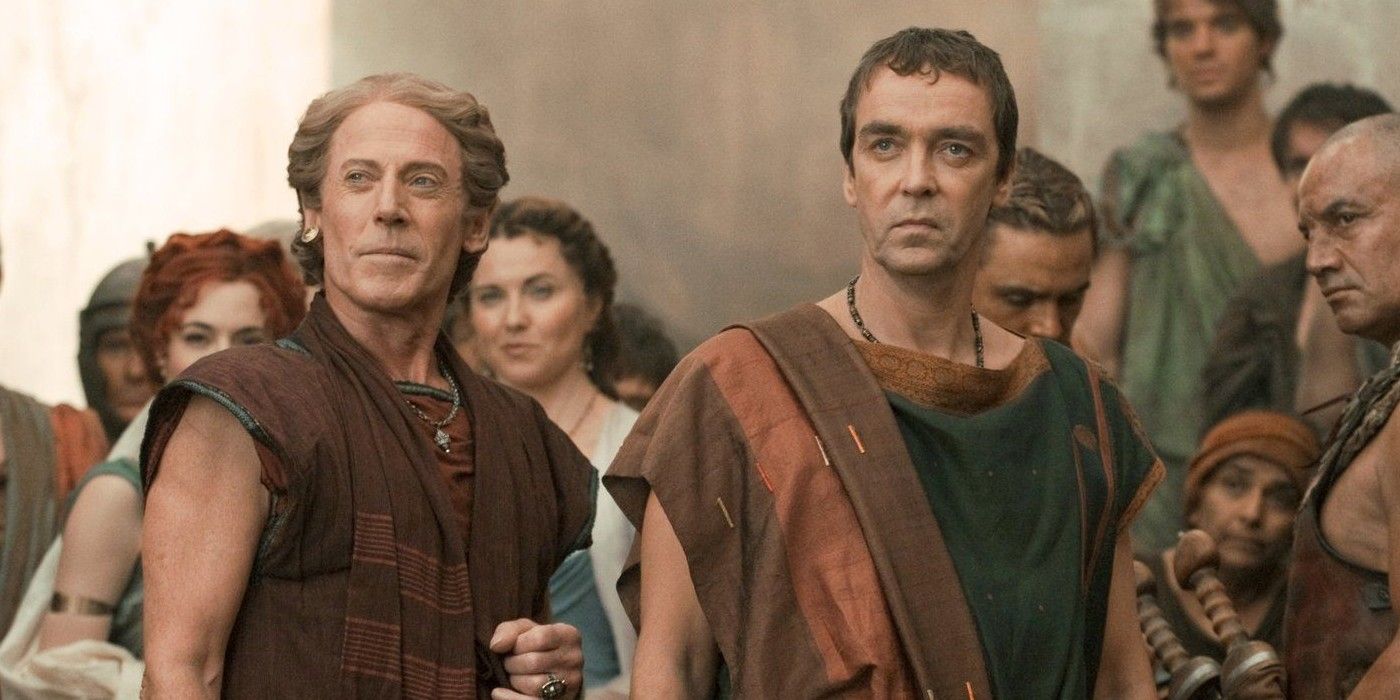
The Film
As for the supporting characters from the film – once again there’s not really much to write about. There’s a love interest – check. A cruel taskmaster – check. An incompetent general – also check.
The only good character in the original film was Lawrence Olivier’s portrayal as Crassus. Olivier plays him as the ultimate conman. A deep guy full of deep in philosophy about Roman republican ideals – a man who doesn’t seek power for its own sake! – Or at least that’s what he tells his friends and even himself. A guy like that would fit perfectly with American politics today. Aside from him I barely remember anything about the rest of the side characters.
The Series
The advantage of having a longer-length series is of course you get to expand on these side characters. In fact, the main strength of this show is its character dynamics that really drive the plot. My favorite of them is the relationship Spartacus has with Crixus. In Blood and Sand they are pitched as bitter rivals. Even when they make peace in the later seasons, they are in constant disagreement on what road to take next. In the end, they part ways as mutual brothers.
Even its villains have a large amount of drama dedicated to them. The interesting thing is the villains often have their own antagonist to fight against so in a way, you almost root for the piece of shit in your own way. Batiatus has arena owner Tullius, Praetor Glaber has rival Praetor Varinius, Even Crassus’s son Tiberius is such a big asshole you just wish Crassus would discipline if he wasn’t so blind to his work. It is a weird reminder that no matter how much you might hate someone, there’s always a bigger dick (sometimes literally).
There were however some character changes as well. Spartacus was not the only actor to be recast as Naevia’s original actress (Lesley-Ann Brandt) was replaced by Cynthia Addai-Robinson.
I’m somewhat conflicted about this change. My best guess for this change is they want to change Naevia from a quiet helpless slave girl to a fearless warrior. To her credit, Robinson does a fantastic job in this role but it is still very different person from what she was when we last saw her in Blood and Sand (chronologically). I get that the reason for her transformation was because of the horror and abuses she went through being tossed from house to house, but she goes from a docile handmaiden to a complete bloodthirsty psychopath by season 4. I understand the reasons for this re-cast but a little consistency is all I ask for. Replacing an actress for this somehow just feels wrong somehow.
A Fridge-Bang… Twice…

The Starz series is guilty of the “Fridge Bang” cliché, that being the wife is killed to make room for another chick to get naked with. However, I felt this one did a better job than other similar stories.
Spartacus’ first wife, Sura (Erin Cummings – above), is pretty fleshed out well enough for her to be memorable. This is also true for the second woman in Spartacus’ bed, Mira (Katrina Law – below), as she’s not just another bland love interest she’s portrayed as very intelligent – far from being a damsel she actively helps out the gang.
What disappoints me is that Mira’s inevitable demise (spoilers?) at the end of Vengeance and she is hardly mentioned ever again. In War of the Damned they take the Fridge-Bang trope for yet another spin with Spartacus’ new love interest, Laeta (Anna Hutchison – below), but her arc and character is so bland she just feels like a tacked-on substitute – because hero girlfriends are both mandatory and interchangeable… right?
Action
Another weakness of the film was the action scenes – which look like stage farces of people playing with swords in a LARP group, rather than trying to kill each other.
To its credit they do show a proper roman army formation – and I do mean show it. See this clip, that’s literally 10,000 soldiers onscreen
With the Starz Series… it’s just trying to be 300 man, you can’t compete with that. However watching it again after several years I’ve found that the action does suffer from repetition; with the same slo-mo, same monster yelling, – even the choreography and fighting styles get repetitive at times.
In recent years, I’ve come to realize that it was the show’s characters and story that carried the series not so much the action, in many ways like the original.
Historical Butchery
If you are a hardcore history buff alone this intro alone may turn you off.
Both the film and the show have found ways to stretch their history. In fairness, though very little is known as Spartacus as the man, even his whole origin being of Thrace is somewhat under scrutiny. Despite its large fictionalization of its characters and events, the 2009 Starz series is more faithful to the historical period than the 1960 film. Much of the basic events such the Battle at Mt Vesuvius, Crassus’ decimation of his army, and even Pompey stealing credit for Spartacus’s defeat were all addressed, they’ve just been highly dramatized for entertainment.
Conclusion
I may be one-sided with the original film and many would consider it a masterpiece at the time. I don’t doubt that, but the truth is I’ve never grown up with that movie. By the time I did see it on DVD I was in college and had seen many more contemporary films including the Starz series. It was my awareness of the historical background and the desire for all things modern why not the original as high in my regard.

